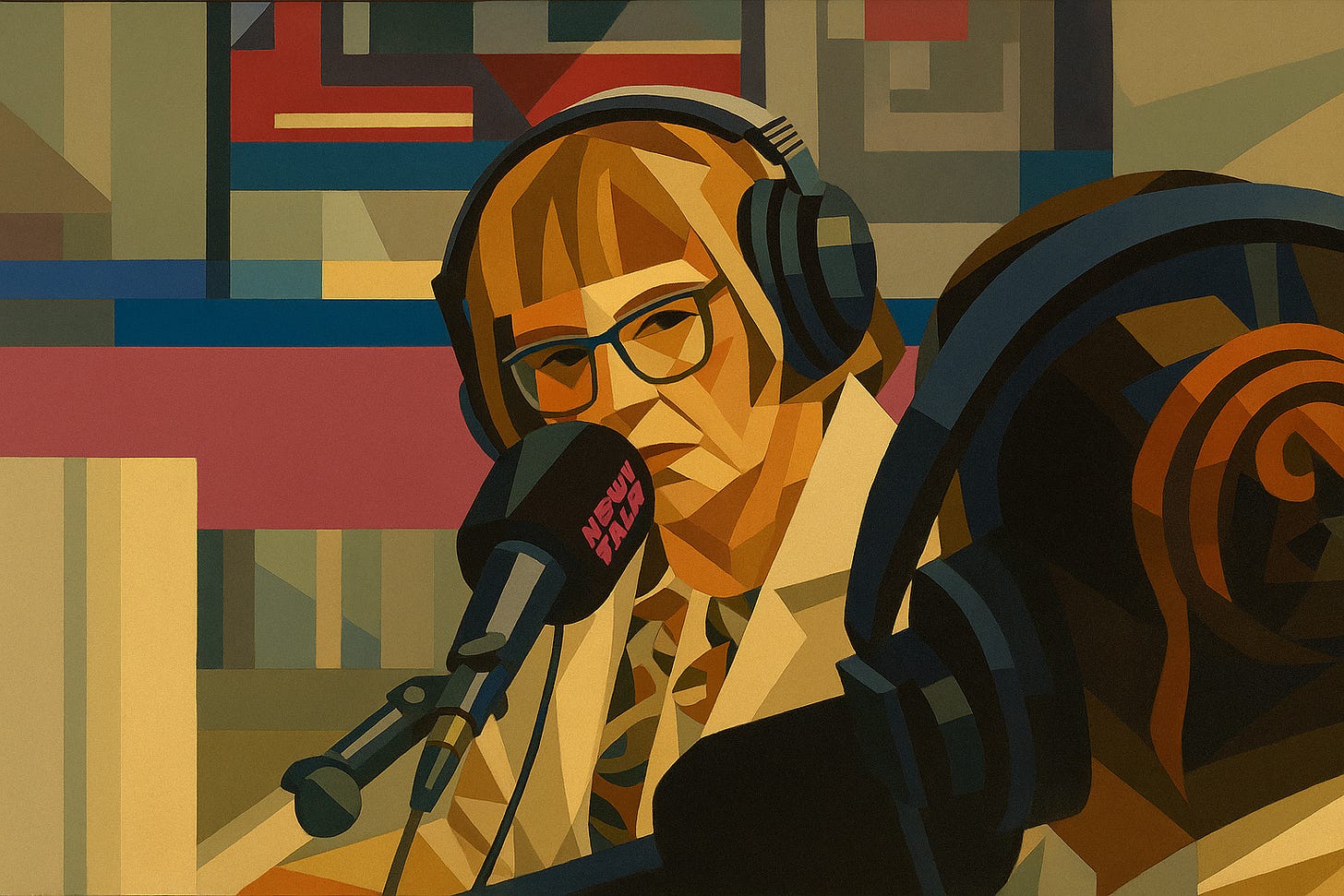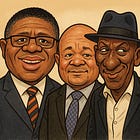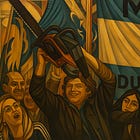Anele Mdoda’s Luxury Beliefs
Anele Mdoda, Helen Zille, and the politics of luxury beliefs
I must have missed the moment when Anele Mdoda was appointed South Africa’s newest public intellectual. The last I checked, back in the days when I was still living in Pretoria and forced to listen to 947 FM over someone else’s car radio, she was just a morning show host. She had quick wit and the kind of banter that gets listeners through the traffic on the N1. But was no political analyst or serious journalist.
So I was surprised to hear her recent interview with Helen Zille turn into a storm. What could have been an interesting exchange with Zille who has ended her hiatus at the coalface of politics to run for Mayor of Johannesburg, ended up as a showcase of Mdoda’s posturing. It was quickly quite clear that this was a celebrity flexing on a guest she presumed unpopular, because that’s what X tells her.
The problem is there is a social cost to the approach and ideas people like Mdoda have.
The Luxury of Criticising from the Comfort of Sandton
Rob Henderson, the American writer, coined the phrase luxury beliefs. These are ideas and opinions that flatter the speaker, signal moral sophistication, but cost them nothing while imposing very real costs on others. It’s a neat frame for understanding a certain class of South African commentary.
Because let’s be blunt. Where the Democratic Alliance governs, unemployment is lower, services are delivered incomparably better and clean audits are the norm. Where anyone else governs, the opposite is true: broken infrastructure, fiscal looting, and promises that collapse like the roads in Joburg’s CBD. And this is not a partisan slogan, it’s the Auditor-General’s reports year in and year out.
Yet here was Anele Mdoda, driving to work on roads pockmarked with potholes, past darkened traffic lights, and somehow convinced that the proper target for her scorn inherited from social media is not the ANC that presided over this mess, but the DA. She can afford this luxury. Her own power failures are an inconvenience, not a life sentence. Her kids will never be consigned to a failing township school. The millions in Alexandra, however, don’t share her insulation.
Mdoda will happily lob softball questions at Panyaza Lesufi in her multiple interviews with him the last few years but when Zille sits across from her, speculation and allegations suddenly become urgent lines of inquiry. That asymmetry isn’t journalism. It’s clearly performance. Mdoda calls Cape Town “segregated” as if it’s still run under Group Areas. This is not analysis, it’s posturing. It’s a luxury belief to declare this from behind a microphone while ignoring the fact that hundreds of thousands of poor South Africans choose to move to Cape Town every year for better schools, clinics, and jobs.
Tweets versus Tap Water
What makes this even stranger is that Mdoda herself admitted in the interview that Zille is supremely qualified to run a city. She didn’t deny Zille’s track record, her policy, or her ability to wrestle bureaucracy into order. Instead, she raised the question of tone and Zille’s tweeting style.
For the majority of Johannesburg residents, the trade-off is not between witty tweets and kind tweets. It’s between taps that run and taps that don’t. They will pick running water ten times out of ten. They would rather live under a mayor who now and then sends out a tweet some view as barbed than under a mayor who smiles sweetly, is black and tweets Mdoda’s preferred transformationist lingo.
To pretend otherwise is to indulge in the purest kind of luxury belief.
The Basics of Governance
What further struck me, and has struck me quite frequently recently, is the ignorance about the country’s governance framework. It is startling how many clever and accomplished South Africans still don’t grasp that different spheres of government carry different powers. Cape Town, for example, struggles with crime as does the entire rest of the country. But policing is a national competency, run from Pretoria, not from Wale Street or the Civic Centre in Foreshore. The DA has been pushing for devolved policing powers precisely because the national government is failing. Yet when Cape Town’s crime rates rise, critics lazily chalk it up to DA failure, as if the DA could simply conjure 5000 new SAPS officers if only they wanted to.
Polling by the IRR shows safety ranks as a top concern among South Africans. And Maslow’s hierarchy makes sense of that. If you can’t walk the streets without fear, nothing else matters. But again, the point is that the DA is boxed in by constitutional design, and spends much of its political capital trying to pry some powers away from the national government that botched them in the first place.
Meanwhile, look at what the DA has done where it governs. In Cape Town, inequality remains a brutal fact of life, but you also see record infrastructure spending in low-income areas. Clinics function. Public transport runs. Water crises are managed rather than allowed to fester into cholera outbreaks. Cape Town and the Western Cape is not utopia, but it has government that tries and often succeeds.
Even Mdoda admitted that people flock to the Western Cape for opportunities. She scolds Zille for calling them refugees. But then, almost in the same breath, she claimed Cape Town only services the privileged. How does she square that circle? If the city was truly as hostile to the poor as she suggests, why do tens of thousands of South Africans vote with their feet to move there each year? Migrants may exaggerate in their praise, but they do not voluntarily relocate to dystopias.
This is what I mean about luxury beliefs. It’s easy to sit in a comfortable studio, microphone in hand, and pronounce that Cape Town is for elites. It flatters one’s own moral standing. But the single mother in Khayelitsha who stands in a clinic queue that actually operates after fleeing the ANC’s dysfunction elsewhere may not see things the same way.
Mdoda furthermore casually suggested there were “Zille tender scandals,” then couldn’t name one. This isn’t accountability journalism despite Mdoda’s best efforts. And worse it is corrosive, because it creates the impression of moral equivalence, the DA, ANC, they’re all corrupt, which is precisely the narrative the ANC relies on to escape accountability while ignoring the fact that were the DA governs it gets clean audits.
It becomes a kind of circle logic. First, the DA is accused of being corrupt. When you point to the Auditor-General’s reports showing consistent clean audits, the line shifts: no, the DA isn’t corrupt, but it doesn’t govern “for everyone.” When you then show the cross-subsidisation in Cape Town, the fact that the city spends more per household in Khayelitsha than in Camps Bay, the argument moves again: perhaps that’s true, but Zille tweets things some don’t like. And so the carousel turns back to tone and optics.
Meanwhile, the ANC is measured against no such standard. Its governance is not compared to any ideal, nor even to the DA’s record, but merely to itself. If corruption is exposed, the retort is that “all politicians are corrupt.” If service delivery collapses, we are reminded of apartheid’s legacy. If people flee to the Western Cape, we are told not to call them refugees. The bar is lowered to the ground, and somehow the ANC still struggles to clear it.
This is why the indulgence of luxury beliefs is so dangerous. They allow comfortable people to keep the ANC on life support by pretending that the only real problem in South African politics is that the DA isn’t perfect. For millions of ordinary citizens, however, the choice is not between perfect governance and flawed governance. It is between collapse and competence.
Conclusion
In conclusion I’ll admit something here. I had my doubts about Helen Zille throwing her hat in the ring for Johannesburg. Not about her competence. She’s proved herself again and again, whether in Cape Town’s turnaround, the Western Cape’s governance, or the DA’s resilience under immense pressure. My worry was her energy. Johannesburg is a corrupt, sprawling and chaotic beast, and she is no longer in her fifties when she won world mayor of the year.
But watching this interview, I realised my concern was misplaced. Zille sounded as sharp, focused, and very much in fighting form as ever. Few have her stomach for a fight.
Johannesburg is in desperate need of competence. The city’s very survival is in question. The question is therefore not whether Zille is the perfect mayor. No such person exists. The question is whether anyone else has both the ability and the grit to drag Joburg back from the brink.
On that score, the answer seems obvious.
Mdoda can hold her luxury beliefs. She can mock, she can nitpick, she can complain about tone. None of it changes the brute reality: millions of South Africans live under collapsing governance, and the DA, imperfect as any human organisation, is the only party in the country that has consistently demonstrated it can deliver something better.
Helen Zille is not flawless, but she is formidable. And if Johannesburg is to be saved, it may require precisely that. In my view, she is one of the greatest South Africans in history. Saving Johannesburg would be the cherry on the cake.
More articles:
If you found this piece worthwhile, feel free to share it with someone who might appreciate it.
To get future essays delivered directly to your inbox, you can subscribe here:
I welcome thoughtful conversation—feel free to reach out on LinkedIn or follow along on Twitter.
An edited version of this article was published on Politicsweb If you'd like to support my writing please subscribe and consider a pledge.
This cover image was created using Sora.







good article
Well said. I also wanted to reach out and ask you Daniel if you would be interested in translating my book South Africa: In the Name of the Father, and we can share royalties